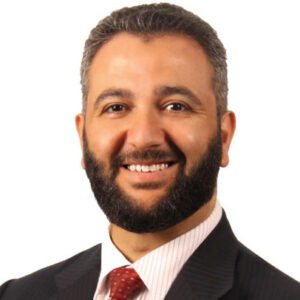So, you are considering investing to grow your hard-earned wealth.
These days, there is no shortage of products out there that may meet your personal financial circumstances. There are also people out there that are quick to invite you into their money-making ventures, in vast markets such as property, Crypto, precious metals and much more.
But you should be wary of this “invite”. In almost all cases, any invitation you receive to a financial product or financial advice requires an Australian Financial Services License (AFSL or AFS License).
There are many individuals who are determined to entice you to “invest” in their financial interest even though they do not have an AFSL. By law, when someone is carrying out a Financial Service they are required to have an AFSL. Whether you are recommending or marketing to raise funds for the purpose of investing, you need to be licensed. Without it, anything other than an AFSL will get you in trouble with the law.

Who is Required by Law to Have an AFSL?
According to the Corporations Act 2001, any “person” who carries out “financial services” business needs an Australian Financial Services Licence (AFSL) in this jurisdiction. These “persons” include those who are…
- Providing financial product advice (personal and/or general);
- Dealing in financial products (including issuing and/or arranging);
- Making a market in financial products;
- Operate a registered scheme;
- Providing a custodial or depository service;
- Providing claims handling and settling service;
- Providing a crowdfunding service;
- Providing a superannuation trustee service;
- Providing a traditional trustee service;
- Operating the business and conducting the affairs of a corporate collective investment vehicle.
These “persons” may also work in the following professions…
- Financial Planners
- Managed Discretionary Account Providers (MDA Advisers and MDA Operators)
- Managed Investment Schemes (Fund Managers, Responsible Entities and Custodians)
- Remittance Providers
- Traders (Foreign Exchange, Futures and Contracts for Differences)
- Brokerage Providers (e.g. Insurance and Securities)
- Payment Product Providers (e.g. PayPal)
- Multi-disciplinary financial institutions, including Banks
The Australian Securities and Investments Commission (ASIC), who provide individuals with the authorisation to run a financial services business, regulates AFS Licences. However, depending on your circumstances, you may be exempt from requiring an AFSL or you may provide financial services under a limited AFS licence. You may also choose to provide financial services as an authorised representative or a corporate authorised representative of an AFS licensee/holder. These AFS licensees/holders are then required by law to implement an array of compliance measures. You can search ASIC records of AFSL holders and Authorised representatives at this link.

What types of AFS Licenses are available?
There are two types of AFS Licenses, wholesale and retail.
Wholesale
An individual with a wholesale AFS License provide financial services to investors who meet the definition of a Sophisticated Investor. To determine whether a client meets the requirements of this type of investor, they typically qualify through one of these common types of tests…
- Price or Value Test;
- Net Assets or Gross Income Test;
- The Sophisticated Investor Test;
- The Professional Investor Test; and
- Size of Business Test.
For example, a wholesale client who qualifies under the price or value test invests in a product or service with a price or value exceeding $500,000. This test does not apply to risk-based products such as life insurance or if the value is sourced from a superannuation fund.
Another example of a wholesale client, using the net assets or gross income test, would be individuals with net assets of at least $2.5 million. They could also have a gross income of at least $250,000 for each of the last two financial years. In both cases, these assets or gross income must be certified by a qualified accountant and cannot be from a product or service provided in connection with a business. The certificate collected from the qualified accountant must be given to the AFS holder within the preceding two years.
However, being a wholesale or Sophisticated investor also comes with substantial risks. Wholesale clients do not have the support of a complaints authority. They also have less protection than other types of investors. Where Future of Financial Advice (FOFA) laws have a duty to protect the best interest of investors, these laws often do not apply to Sophisticated investors as it comes with their territory of having the clearance to invest in more complex financial products.
Retail
A Retail AFS License covers financial services to any client who does not meet wholesale client definitions in the Corporations Act and Corporations Regulations 2001. These can be, for example, investors who are individuals, parents, family trusts, company entities or self-managed super funds. In most instances, a person is a retail client by default unless they meet the specific test requirement for a wholesale client.
The compliance measure for AFS Licenses offered to retail is much more demanding, as the law provides greater protections to retail clients. This includes strong operational due diligence from financial service providers, one that complies with Chapter 7 of the Corporations Act, as they need to be aware of the additional obligations that apply when dealing with retail clients.
In general, the AFS licence will set out whether you are authorised to provide services to retail and/or wholesale clients. If you are only authorised to provide services to wholesale clients, it is your responsibility to ensure that you do not provide services to retail clients. In turn, many obligations associated with providing financial services (such as obligations to provide a Financial Services Guide or a Statement of Advice) only apply when your client is a retail client. That is why it is important to know whether an investor is a retail or wholesale client.
How is HealthBridge Capital structured?
HealthBridge Capital (the Fund) is a retail-managed fund. It has an investor base of individual investors, joint-individual investors, self-managed superfunds, family trusts and companies.
HealthBridge Investment Management Pty Ltd is AFS licensed and a Corporate Authorised Representative of Quay Fund Services Limited (Quay). Quay has been established as an independent provider of responsible entity and trustee services to fund managers. Quay’s principals have extensive experience in operating registered managed investment schemes.
Under the supervision of Quay, the Fund has appointed…
- An external Custodian (a trustee that holds the assets in safekeeping);
- A Fund Administrator (manages the accounting and unit pricing of the Fund);
- A Registry (manages the unit holding register and pays the distributions to investors); and
- An auditor (who audits the compliance regime and the Fund financials to produce the annual financial statements).
As a retail-managed fund, HealthBridge is required to issue a Product Disclosure Statement (PDS), Target Market Determination (TMD) and Financial Services Guide (FSG) for clients.
The Product Disclosure Statement (PDS) is a document that financial service providers must provide to you when they recommend or offer a financial product. It must include information about the product’s key features, fees, commissions, benefits, risks and the complaints handling procedure.
A Target Market Determination (TMD) is a document that explains which people particular financial products may be suitable for (the target market) and sets out any conditions around how financial products can be distributed to consumers. TMDs are compulsory for most financial products.
Under the Corporations Act, providing entities that provide financial product advice to retail clients, such as HealthBridge, must prepare and provide a Financial Services Guide (FSG). They must also give general advice warnings when providing general advice. Where a financial planner provides personal advice they are required to prepare and provide a Statement of Advice (SOA).

So What Does All This Mean if You are Considering Investing?
This means that when you are looking to invest your hard-earned money and someone has invited you to invest in their scheme, you should ask if…
- They are licensed to ensure they are qualified to give you general or personal financial advice
- Their financial product is regulated by an AFSL to ensure their regulatory supervision
- You can have easy access to a PDS, TMD and FSG to determine if the product is right for you
If not…then think very carefully about departing with your funds.
Disclaimer – Any information or advice contained on this website is general in nature and has been prepared without taking into account your objectives, financial situation or needs. Before acting on any information or advice on this website, you should consider the appropriateness of it (and any relevant product) having regard to your circumstances and, if a current offer document is available, read the offer document before acquiring products named on this website. You should also seek independent financial advice prior to acquiring a financial product.
All financial products involve risks. Past performance of any product described on this site is not a reliable indication of future performance. For a copy of our Financial Services Guide please click here.
Healthbridge Investment Management Pty Ltd is the Investment Manager of the Healthbridge Capital fund. It holds a Corporate Authorised Representative authorisation CAR No. 001277945 from Cache (RE Services) Ltd (AFSL No.494886). Healthbridge Investment Management Pty Ltd also holds a Corporate Authorised Representative authorisation from Quay allowing it to provide General Product Advice.Call us on 1300 933 034 or email us at info@healthbridgeinvest.com.au and ask for a Product Disclosure Statement (dated 30 September 2022) for more information.



